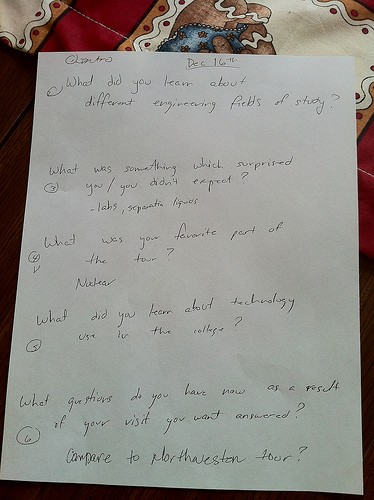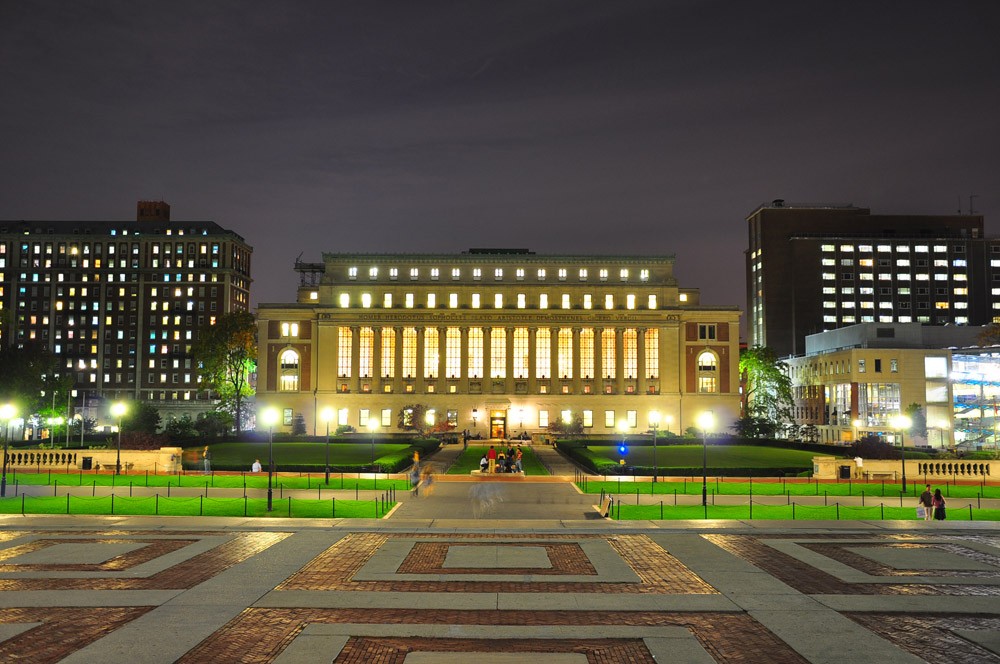AMA Reflections on 1st Semester at Columbia Business School
Post on: 4 Июль, 2015 No Comment

on 1/4/15 at 11:00am
I recently completed my first semester at Columbia Business School and wanted to share my experience thus far. I would also be happy to field any questions. The primary reason for writing this long-winded anecdote is to provide clarity into the actual experience at Columbia for prospective applicants and fellow WSO monkeys. I have also occasionally encountered a negative narrative around Columbia (don’t know why) on this forum and would like to provide an insider’s perspective. I, for one, have absolutely loved my experience at Columbia thus far.
On to the good, the bad, and the ugly about Columbia Business School.
1) Recruiting
Columbia has exceeded my previously established expectations around recruiting.
a. Sell-side investment banking: not as many students at top MBA programs are interested in investment banking these days. @OpsDude had a great post outlining how easy it is (numerically) to get into either a Bulge Bracket or an Elite Boutique investment banking firm from an M7 program. I would further differentiate that it is mathematically easier to enter a Bulge Bracket associate class (i.e. Goldman Sachs or Morgan Stanley ) vs. an Elite Boutique (i.e. Evercore or Blackstone M&A). For example, Goldman Sachs. Morgan Stanley and JP Morgan sent out 45, 40, and 37 1st-round interview invites to Columbia students, respectively. And remember, this is only for NYC investment banking advisory positions; this excludes, for example, Capital Markets and Equity Research positions. At Morgan Stanley. the Capital Markets Group sent out an additional 13 invites and the Equity Research team sent out an additional 11 invites. Also FIG and Real Estate Banking had separate lists (I assume 8-10 invites for each of those groups as well). So just for Morgan Stanley. there were
80 1st round interview spots for Columbia Students across various positions at the firm.
Comparatively, Evercore sent out only 26 1st-round spots, Blackstone M&A 14 spots, and Blackstone Restructuring 11 spots.
In conclusion, at Columbia, it is incredibly accommodating to start a career in either an elite Bulge Bracket firm or an elite boutique firm. There are just fewer spots at the boutiques (obviously, given the size of the firms and the lower turnover rates).
b. Investment management: Columbia has a very strong presence in investment management (i.e. mutual funds and hedge funds). The following firms recruit on-campus at Columbia (not off-campus; these firms actually have on-campus interviews and scheduled interview slots for Columbia students): Eaton Vance, Parnassus Investments, Fred Alger Management, American Century Investments, Citadel. Invesco, MFS, Mount Kellett, Columbia Wanger, Baron Capital, Ionic Capital, Appaloosa, Kingdon, Causeway, Sheffield Asset Management. Clearbridge, Franklin Templeton, T Rowe Price, Putnam, Fidelity. Glade Brook, PIMCO and Capital Group.
This list is also not all-encompassing (doesn’t include all on-campus firms and excludes ALL off-campus firms that do have postings, i.e. Dodge & Cox, Davidson Kempner, Orbis). In other words, if you want to work for a prestigious mutual fund or hedge fund, Columbia is a phenomenal choice.
While investment banking recruiting seems to be accessible to MBA programs in the Top 15-20 range, investment management is extremely selective and prohibitive for prospective applicants, unless you go to a top 5-7 program.
For example, Clearbridge only recruits at Wharton, Columbia and Tuck. Eaton Vance only recruits at Harvard, Wharton and Columbia. PIMCO recruits for specific positions (i.e. portfolio management or credit / equity research ) at the top 5-7 schools.
I would also note that investment management, relatively speaking, seems to be the hottest and most desired industry at Columbia. I believe this is driven by two factors: 1) top mutual funds and hedge funds don’t interview people without relevant experience, so people that worked in industries outside finance (i.e. Consulting, Operations, Technology, Manufacturing, General Management) will not get interviews, even if they network extensively (caveat: some MBB consultants, for example, a female friend of mine who attended HYP and worked at MBB. do get interviews. Also, certain URM and Veteran applicants are offered some additional flexibility). My most impressive classmates (HYP undergrad, Goldman TMT. Mega-Fund PE) are almost exclusively interested in top mutual funds & hedge funds, and set an extremely high bar for recruiting. 2) the positions are extremely hard to get. For example, for 1st round interview slots, Eaton Vance has 13 slots. Also, whereas Goldman Sachs will hire tens of people from Columbia this year for internship positions, the elite mutual funds / hedge funds have an entire associate class of 2-3. MFS will likely hire 2-3 Summer Associates and recruit at all of the M7 (at least to my understanding, I know for sure they recruit at Harvard, Wharton, Sloan and Columbia). Just from Harvard, 100 people applied to MFS for a summer internship. Do the math — the numbers are quite daunting and competitive.
c. MBB consulting. I am not involved with MBB recruiting but to my understanding, it is analogous to sell-side banking recruiting. BCG. for example, handed out 70 first round slots to Columbia students. I also know that Bain handed out 132 first round slots to Columbia, which is a significant figure relative to the class size of
500 (the 200 J-termers are excluded from summer internship recruiting because they (1) are not on campus yet (2) do not need summer internships and hence are enrolled in the J-term)
d. Private Equity: I am not involved with PE recruiting but relative to investment management, I believe that this is one of Columbia’s weaker areas. However, a part of it, at least from my own research, is driven by self-selection and the alumni base of the school. The investment management club at Columbia has hundreds of members and extremely illustrious alumni that are active with giving back & recruiting at the school (including a small-time investor named Warren Buffett ). The PE / VC club at Columbia is not as active (to my understanding and again, just relative to investment management) and it shows in our employment report. An impressive 13% entered investment management from Columbia (2014 graduates), but only 2.4% of these graduates went into PE.
That being said, Columbia certainly has a presence in Private Equity and Blackstone private equity does have on-campus interviews at the school.
2) Academics
The Core Curriculum can be a bit rudimentary in certain areas that you have familiarity with (i.e. Accounting / corporate finance ; mbavsmfin had a nice post reviewing this) but the school allows you to exempt out of the class by taking an exemption exam.
Pros of Core: you are assigned to a Cluster of 60-70 students with whom you become very close, both personally and professionally. You spend every day in class with your clustermates and you are really able to form a distinct social bond with these classmates. It is great because this is, after all, what you pay for when you go to business school. One of my clustermate’s father runs one of the largest hedge funds in Western Europe, another clustermate is a former U.S. Olympian, another clustermate used to manage the Museum of Modern Art in Manhattan, and another clustermate is the child of a Fortune 100 company in the U.S. I now have, at the very minimum, 60+ new friends and colleagues to call my own. Quick general point: Columbia does seem to attract a lot of Ivy League undergrad / wealthy international students. Perhaps it is driven by the school’s location in NYC.

Cons of Core: you have to take certain classes that you may not be interested in (i.e. Marketing, Strategy, Microeconomics). Also, it can be annoying to work with classmates that are not very comfortable with the material (however, this is probably true for any business school).
I would add though, that Columbia has some really cool classes. For those interested in investment management / hedge funds, we have a class called Applied Security Analysis where we develop an investment idea over the course of the semester by collaborating / learning from hedge fund managers in the city, and at the end of the semester, we pitch the idea to Bill Ackman of Pershing Square. The winning team wins $100,000 (historically donated to charity).
3) Social / community
Admittedly, Columbia’s biggest negative in the past has been its characterization of an aloof / cut-throat community. I would say that this couldn’t be farther from the truth. The cluster system is great and our cluster went to the Caribbeans mid-Semester to just unwind and have fun. We also have weekly happy hours on Thursdays and weekly social events at clubs / bars in the city. And this excludes, the plethora of clubs on campus that have separate / constant social events. Honestly, even if I didn’t sleep for one second, I wouldn’t be able to attend all of the social events that we have accessible to us.
Also, the Columbia community is actually quite strong, from my own personal experience. I was able to secure a school-year internship at a $1.0BN+ AUM long / short fund in the city because of a Columbia connection. The PM is a Columbia alumnus and he sent a job posting to the Columbia Business School student community. I am not exaggerating when I say that I am frequently bombarded by internship opportunities at prominent funds in the city. This internship allowed me to get first round interviews with the major mutual funds / hedge funds.
However, living in a big city is not for everyone and Columbia (and NYC) is not cheap (to say the least). Mbavsmfin is right in this respect — the city is very expensive. But hey, NYC provides some incredible amenities.
4) Campus
This is Columbia’s black eye. The Columbia University campus is breathtakingly beautiful (I went to a top 5 university and I actually prefer Columbia’s campus) but Uris Hall, where the business school is housed, is old and decrepit. Honestly, it doesn’t fit Columbia’s image or that of any top-tier university. Space can be limited, and you sometimes find yourself sharing space with undergraduates (I imagine Wharton experiences the same inconvenience).
However, thankfully (seriously, thank God), Dean Hubbard has been working on this for a while and finally broke ground on the new campus. Some people don’t love Dean Hubbard (he’s a conservative with certain political ties) but you can’t fault him for his incredible fundraising ability. He received $100 mm from Kravis (CBS alumnus) and $100 mm Ronald Perelman (a Wharton alumnus but a good friend of Hubbard) and the new $600 mm Columbia Business School building is under construction. You can see it being built (along with a new Neuroscience institute) a couple blocks from Columbia’s existing campus. The new Columbia campus will cost $7 bn + (over its lifetime) and will also include a new arts building and a new medical school building (among others). To my understanding, Columbia is flush with cash and recently completed a record-breaking fundraising campaign ($6.1 billion raised, a new record for the Ivy League).
Wow, that was long.
I would be happy to field any questions.














